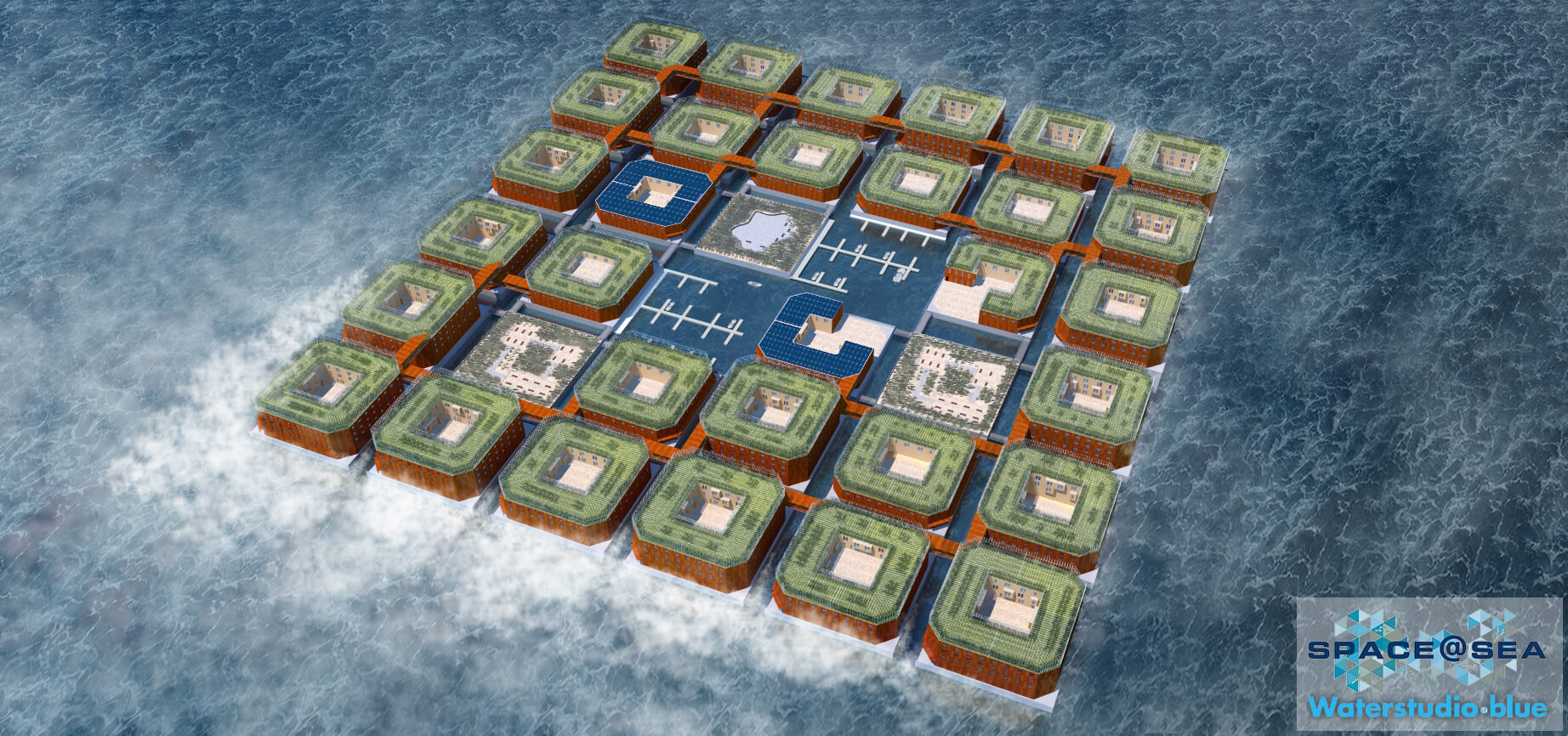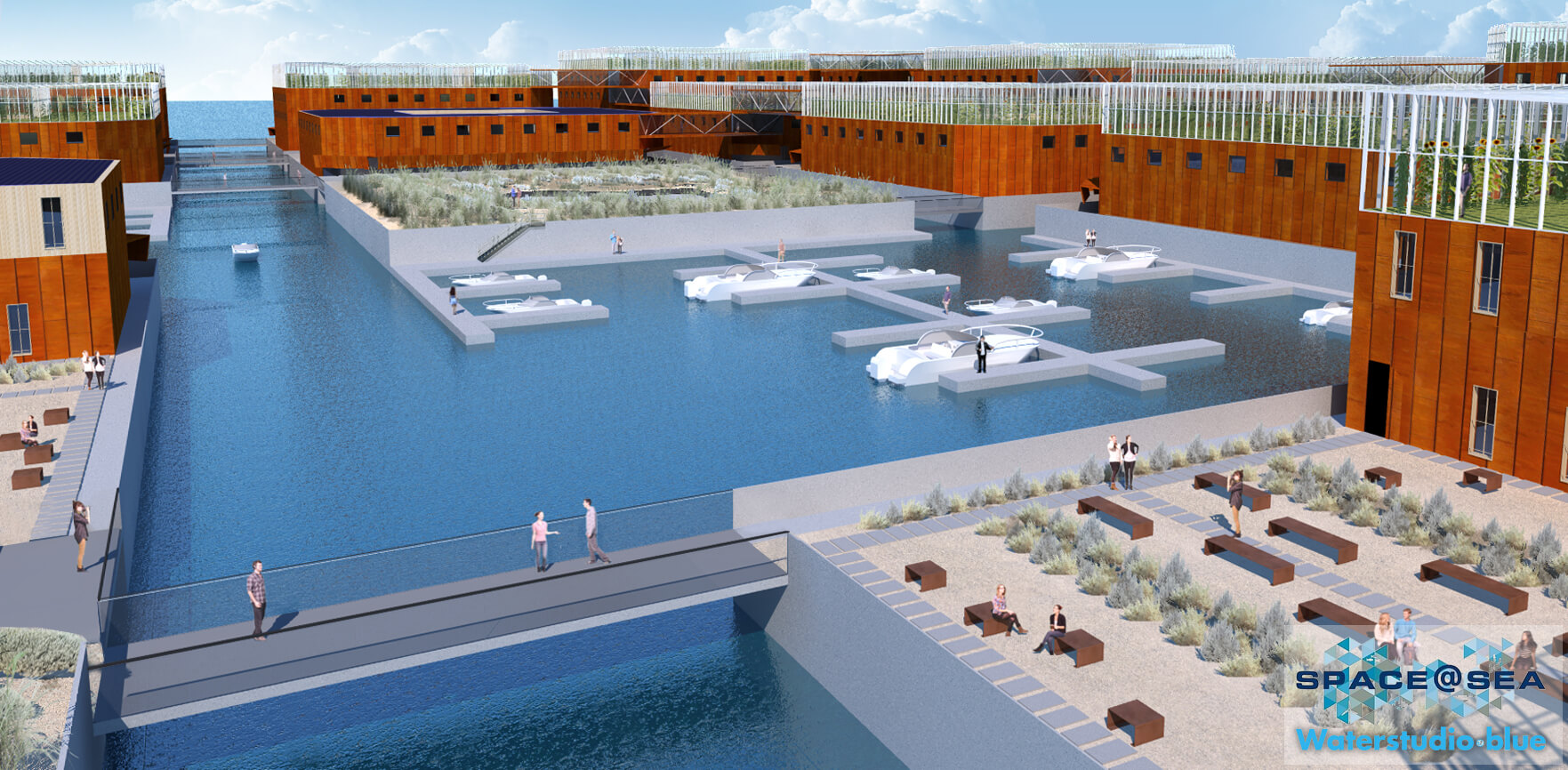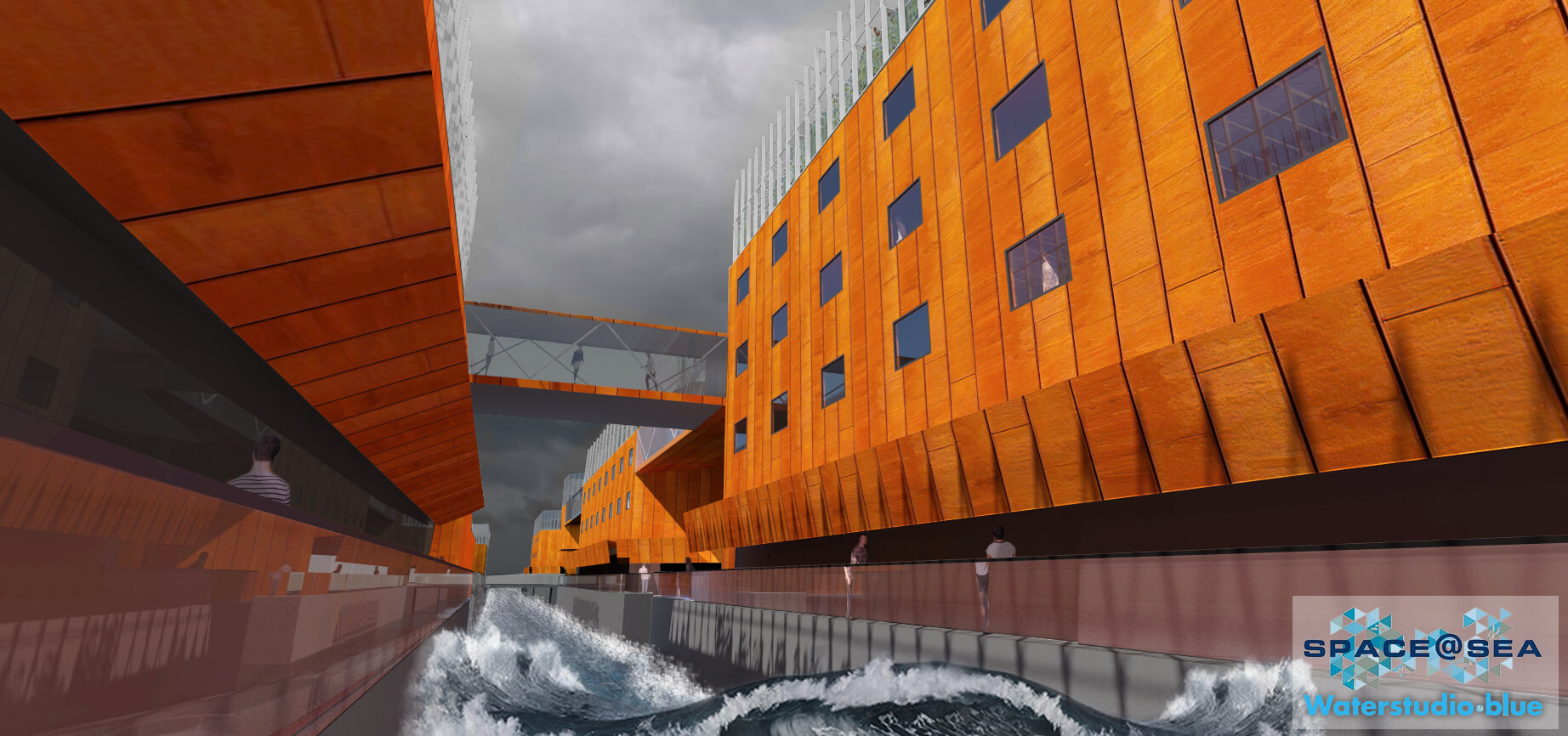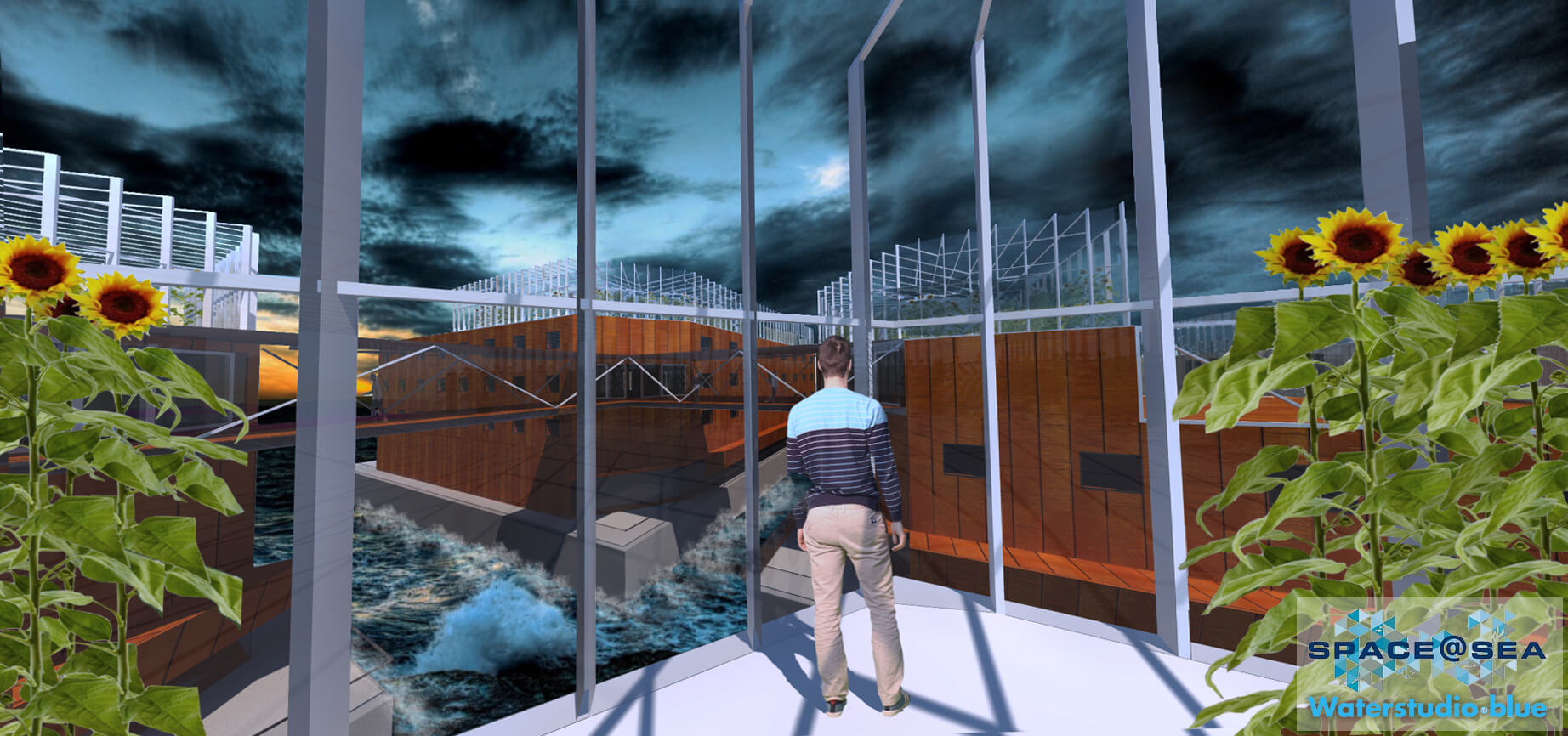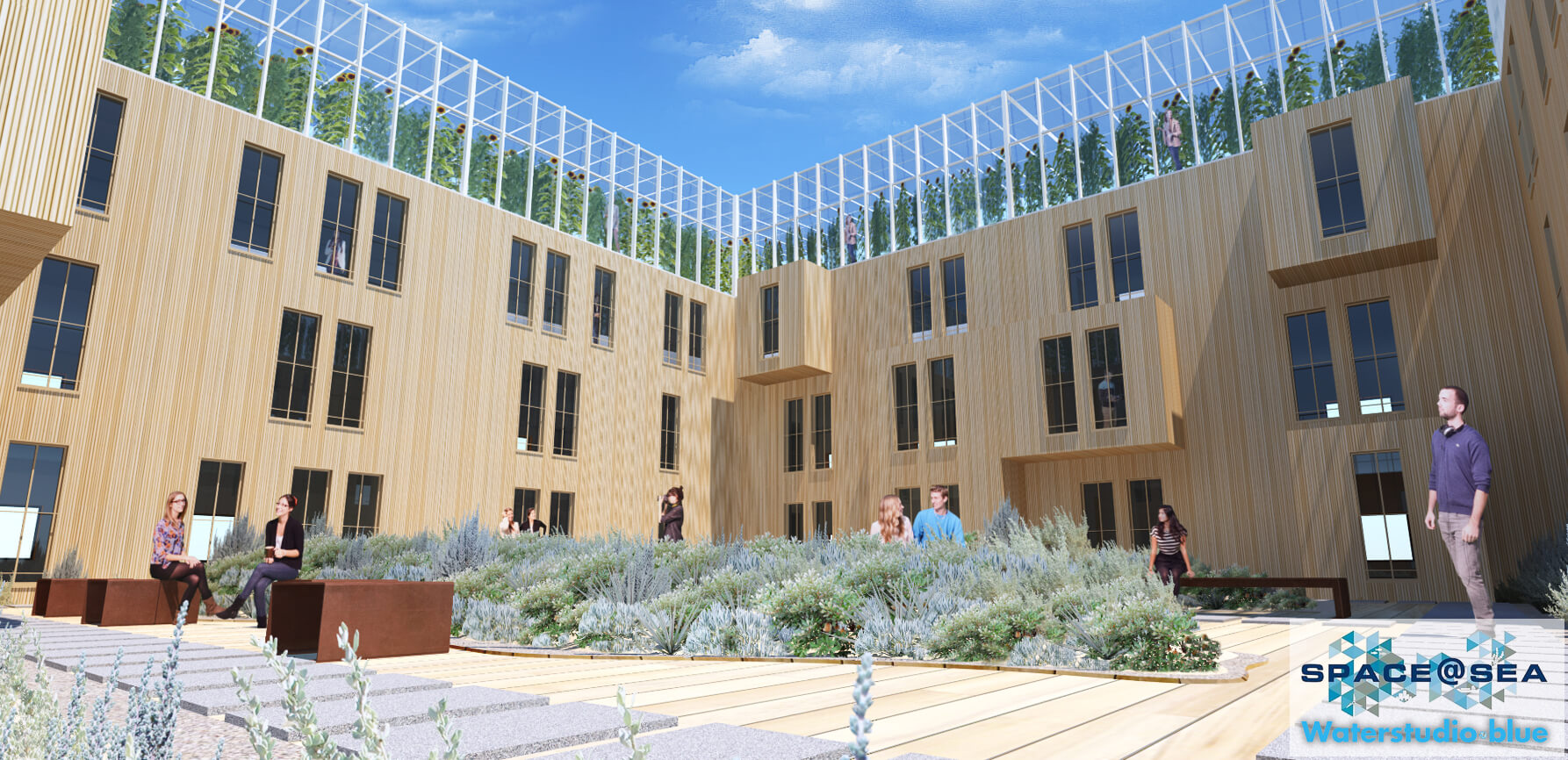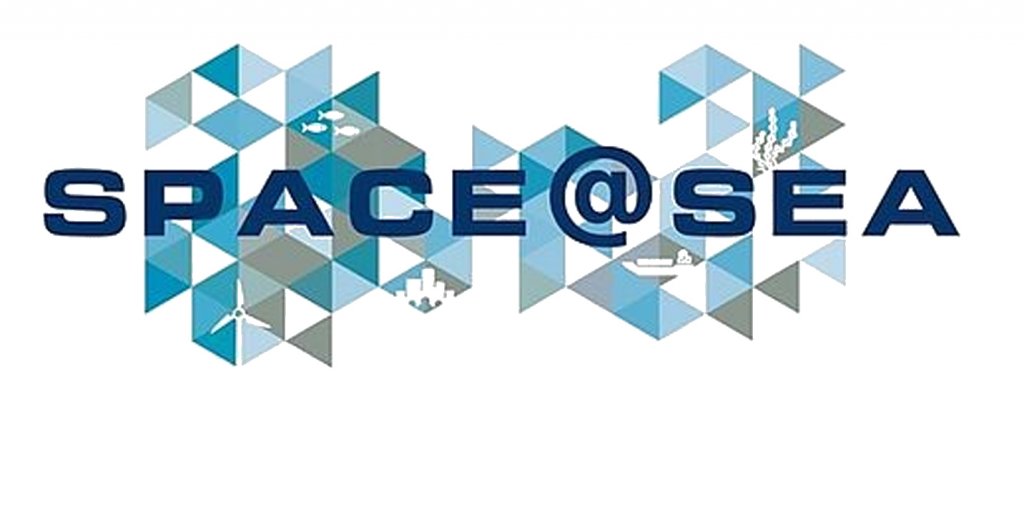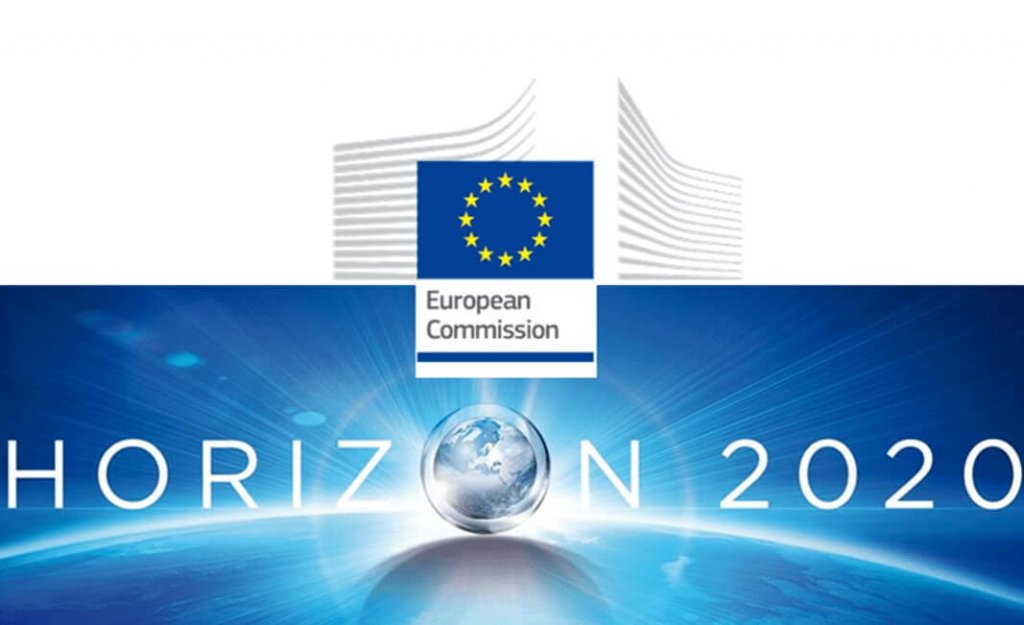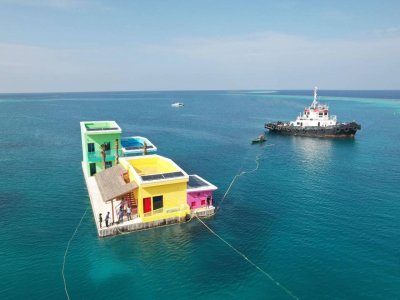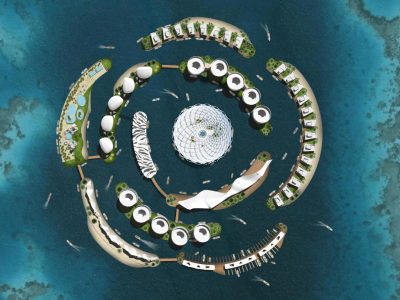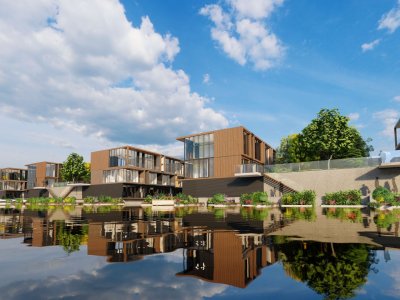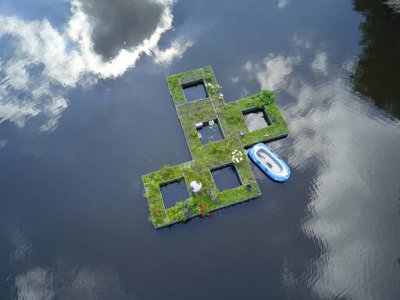Horizon 2020 funded project Space@Sea commenced its work on November 1, 2017 setting out to make a step in efficient use of the maritime environment. The consortium consisting of 17 European partners, aim to provide sustainable and affordable workspace at sea by developing a standardised and cost efficient modular island with low ecological impact. Project coordinator Maarten Flikkema (MARIN) says: “The three-year project can be regarded as a success if the modular design of the multi-use platform has successfully been validated in a relevant environment at model scale”.
Space@Sea will study the most suitable shape of the floaters to minimise the motions. As starting point triangles will be used which also allow for a modular design maximising the flexibility to add and remove deck space and applications if necessary. Offshore specialists will contribute to design a shared mooring solution in combination with a remote monitoring and sensing system to reduce installation and maintenance costs.
In Space@Sea four applications will be studied being farming, transport and logistics hub, energy hub and living. To show the potential of multi-use modular floating islands Space@Sea will conclude with the evaluation of three business cases with combinations of applications for various locations throughout Europe. Space@Sea will initiate digital communication to those interested through a project website and Twitter (@SpaceAtSea). Workshops and other result sharing activities will be announced through these streams.
Space@Sea is partly funded by EU’s Horizon 2020 research programme under project number 774253. Partners working together in this MARIN coordinated project are DeltaSync, DST, Nemos, Delft University of Technology, Mocean Offshore, TU Hamburg Harburg, Bluewater, University of Rostock, Gicon-Grossmann, Wageningen University & Research, University Duisburg-Essen, TU Graz, Waterstudio, Icepronav, Val Fou and GeoSea.
The role of Waterstudio within the Space@Sea project will be the translation of land based communities into sea based communities
The main goal is to add the social layer to the technical and functional requirements, which will be the result of the first part of the research, to develop an urban fabric that will be social accepted as a living area.
The opinions in this document reflect only the author’s view and in no way reflect the European Commission’s opinions.
The European Commission is not responsible for any use that may be made of the information it contains.
Expertise: Urban planning
